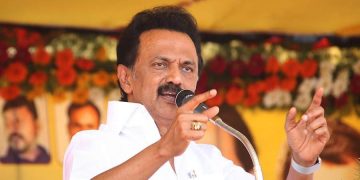Israel is now on the cusp of a change that has the potential to derail the country’s democracy. The fast-paced developments there indicate the danger facing democracy when two of its pillars – the legislature and judiciary – are not properly in place, guaranteeing the system of checks and balances that alone can thwart the aspirations of individuals or groups to foist autocracy. The experience in Israel can offer an object lesson to democratic institutions across the world, including India, which are often under the threat of attempts by the executive to make the judiciary subservient to it.
Trouble stems from the fact that the changes will do away with the powers of the judiciary to scrutinise laws passed in the Knesset (parliament) and actions of the government and the Prime Minister. In other words, the executive will no longer be required to answer before the court of law for its omissions and commissions. The new political actors belonging to the ruling hawkish Likud Party of Netanyahu and the Far-right fanatics seek immunity from the judiciary so that they can do whatever they please to advance their private and partisan agenda.
However, the advocates of skewed reforms are facing a roadblock that they do not seem to have thought of. Israel is now witnessing its biggest demonstrations in years since the plans were unveiled last month. Thousands of people have taken to the streets in different cities against the proposed reforms. They fear that these changes, if passed, would curb the Supreme Court’s power and give the government more say over judicial appointments. Critics say it will undermine democracy even though the government argues the reforms will strengthen it.
Among the reforms, the ability of the Supreme Court to strike down laws would be severely weakened. A simple majority in the Knesset would have the power to override court rulings. The reforms would also give the government more influence over the committee which appoints judges, including those to the Supreme Court.
Israel’s Justice Minister Yariv Lavin, who introduced the plans, accused opponents – including the Attorney General and Supreme Court’s Chief Justice – of seeking to “carry out a coup” against Netanyahu, after a petition was filed to the court to declare the Prime Minister unfit for office.
But, even diehard Israel backers, such as US President Joe Biden, seemed worried over the development. In an unusual step, he criticised the proposals in their current form. It is a rarity for a US leader to express an opinion on constitutional matters in Israel.
Not only that, Israel’s own President, Isaac Herzog, warned that the country was on the verge of constitutional and social collapse. This is even more surprising since involvement by Israeli Presidents in political issues are also rare since the post is considered to be a politically neutral figurehead. All these are because a realisation is dawning on advocates of democracy that the reforms will end up politicising the judiciary which in turn could pave the way for an authoritarian government.
However, these reforms may not be acceptable universally in all democracies. In India too, efforts to weaken the judiciary and all other constitutionally formed bodies have become a matter of great concern in present times. In a healthy democracy, each and every decision, no matter where it emanates from, needs to be closely scrutinised by the other wings before implementation. For example, even the Indian Parliament has grave weaknesses that truly do not permit the voice of the people to be heard in the House. For instance, the ruling party, if it is singularly large enough to form the government, does not wish to pay heed to any suggestion from the non-Treasury benches. This results in lopsided and motivated laws getting passed on the floor of the House. Within Parliament, the various ministry related committees too require an unambiguously nonpartisan and nongovernmental bureaucracy that will keep the Temple of Democracy on even keel. Unfortunately today, the machinery within the Parliament has also been badly mauled and therefore it is incapable of looking at government functioning objectively. Therefore India also very badly requires a judiciary that can distance itself from government and operate in a manner that will ensure laws are conducive to people’s needs. For reaching this goal of impartiality, it is vital that judges are not chosen by the government nor can government reappoint judges in any post after retirement.
The US system speaks volumes about what happens when governments appoint judges. Take for example the large number of judges appointed by Donald Trump during his presidency. He brought in judges who were clear conservatives. The result was overturning the Roe Vs Wade judgement which had given American women the legal right to abortion. Less governance may be the only way out to ensure survival of democracy.






































